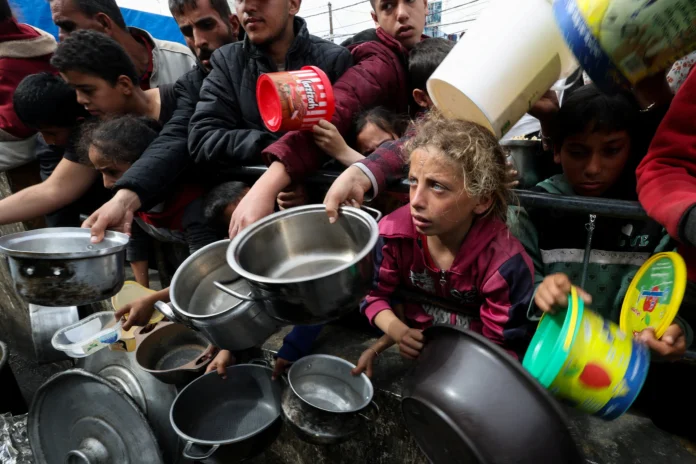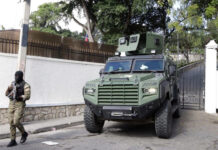By Kelly Were
United Nations Secretary-General António Guterres has declared that Palestinians in Gaza are enduring what may be “the cruellest phase” of the ongoing war, with the population teetering on the edge of famine as Israel’s military campaign intensifies and humanitarian access remains restricted.
In a statement released Friday, Guterres criticized the severity of human suffering in Gaza, pointing to Israel’s near-total blockade that lasted nearly 80 days and prevented vital international aid from entering the enclave. “The entire population of Gaza is facing the risk of famine,” he warned.
Though Israel has slightly loosened the 11-week siege, permitting several hundred aid trucks into Gaza this week, Guterres said the deliveries are grossly inadequate. “All the aid authorised until now amounts to a teaspoon of aid when a flood of assistance is required,” he stated.
He described the Israeli offensive as increasingly devastating, marked by “atrocious levels of death and destruction,” and noted that humanitarian access remains perilous and inconsistent. “Eighty percent of Gaza has been either declared an Israeli militarised zone or is under evacuation orders,” Guterres said.
Without sustained, secure, and efficient humanitarian aid access, the UN chief warned, more lives will be lost, and the damage to the population will be long-lasting. Speaking from New York, he emphasized, “The long-term consequences on the entire population will be profound.”
Since Friday alone, Israeli airstrikes have killed at least 76 more Palestinians. The death toll from Israel’s offensive, which began on October 7, 2023, has now surpassed 53,822, with over 122,382 people injured—most of them women and children.
Although Israeli officials claim that approximately 300 trucks have entered Gaza through the Kerem Shalom (Karem Abu Salem) crossing since Monday, the UN reports that only about one-third of those deliveries have reached distribution warehouses due to security challenges and chaos on the ground. That figure is far below the pre-war average of over 500 trucks entering daily.
A new U.S.-backed initiative—the Gaza Humanitarian Foundation (GHF)—is expected to oversee aid delivery by month’s end. Under the proposed mechanism, private contractors would escort aid convoys to secure locations, where civilian teams would then handle distribution.
However, the UN has declined participation in the scheme, citing serious concerns about its failure to meet essential humanitarian standards.
“We will not support any plan that does not adhere to international law and the humanitarian principles of humanity, impartiality, independence, and neutrality,” Guterres said firmly.
He stressed that the UN already has the resources and systems in place to respond effectively. “We have 160,000 pallets of supplies—enough to fill nearly 9,000 trucks—ready and waiting,” he noted.
Guterres concluded with an urgent plea: “This is my appeal for life-saving aid for the long-suffering people of Gaza: let’s do it right. And let’s do it right away.”



















